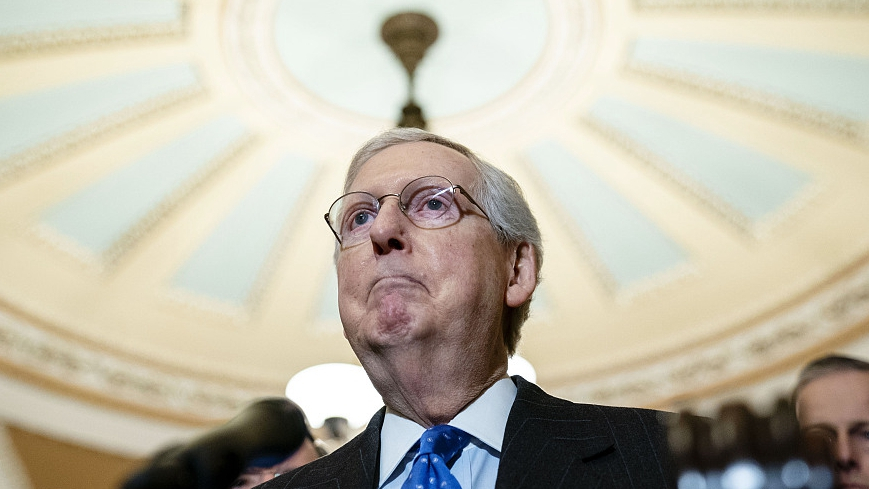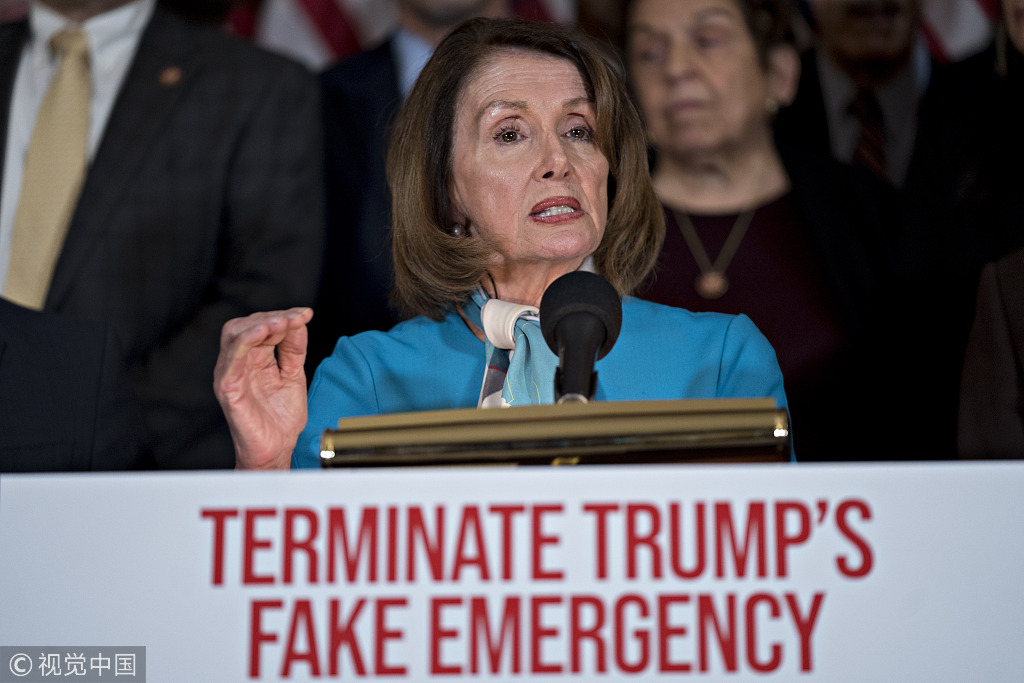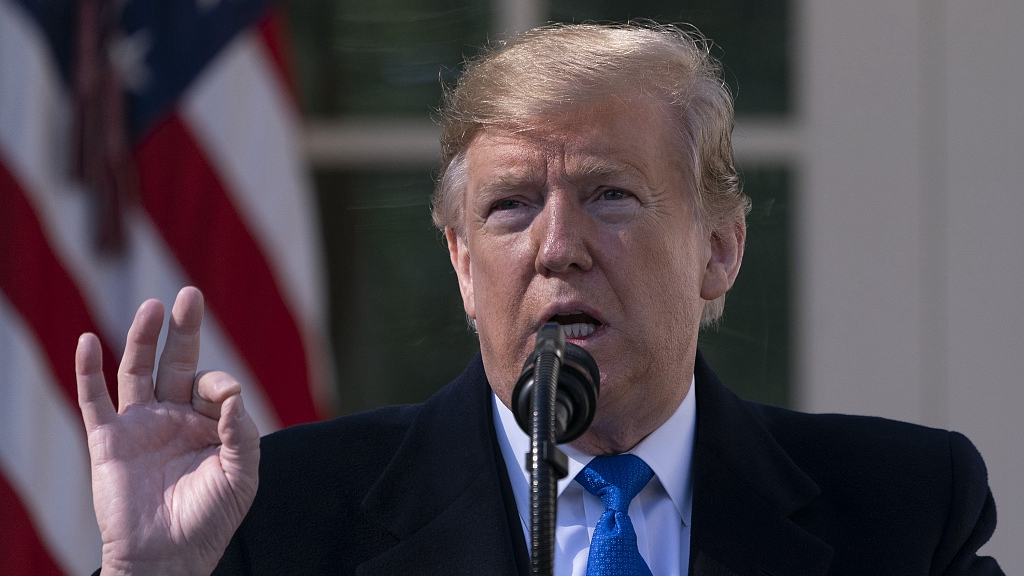
North America
08:36, 05-Mar-2019
U.S. Senate set to reject Trump's emergency declaration
CGTN

The Republican-led U.S. Senate is set to reject the national emergency Donald Trump declared to build his Mexico border wall, likely forcing the U.S. president's first veto, Majority Leader Mitch McConnell said Monday.
The House of Representatives, which is controlled by Democrats, passed the so-called resolution of disapproval and sent it to the Senate, which is expected to vote in the coming weeks.
Senate Republicans have a 53-47 advantage. But four of them have now announced they will vote with Democrats to block Trump, who is seeking to bypass Congress to unlock funds for construction of a wall on the U.S.-Mexico border that he insists will reduce illegal immigration and drug trafficking.
Several other Republicans, while stopping short of announcing they would vote against Trump, have expressed deep concerns about his move, arguing it is a blatant attempt to expand executive authority.

U.S. House Speaker Nancy Pelosi speaks during a news conference at the U.S. Capitol in Washington, DC, U.S., February 25, 2019. /VCG Photo
U.S. House Speaker Nancy Pelosi speaks during a news conference at the U.S. Capitol in Washington, DC, U.S., February 25, 2019. /VCG Photo
With Senator Rand Paul this weekend becoming the fourth Republican on board, the resolution of disapproval is now likely to be sent to Trump's desk, forcing the president into the tricky position of vetoing the measure and acting in clear opposition to Congress.
Each chamber would then need to deliver two-thirds majorities to override Trump's veto – an exceedingly high hurdle.
"I think what is clear in the Senate is there will be enough votes to pass the resolution of disapproval, which will then be vetoed by the president and then in all likelihood the veto will be upheld in the House," McConnell told reporters in Kentucky.
"I was one of those hoping the president would not take the national emergency route," McConnell said, although he backed Trump when he announced his plan.

U.S. President Donald Trump declares a national emergency over the southern border and the need for border security in Washington, DC, U.S, February 15, 2019. /VCG Photo
U.S. President Donald Trump declares a national emergency over the southern border and the need for border security in Washington, DC, U.S, February 15, 2019. /VCG Photo
The Senate leader acknowledged concern that a future Democratic president might use Trump's precedent-setting action as a rationale for declaring national emergencies to bypass Congress on issues such as climate change, health care or gun control.
"That's one reason I argued – obviously without success – to the president that he not take this route."
Trump announced on February 15 that he will declare a national emergency to fulfill his pledge to construct a wall along the U.S.-Mexico border.
On February 26, the U.S. Democratic-majority House of Representatives blocked President Donald Trump's declaration of a national emergency to get funding for his wall on the border with Mexico in a 245-182 vote.
(Cover: Senate Majority Leader Mitch McConnell attends a news conference in Washington, DC. U.S., January 15, 2019. /VCG Photo)
Source(s): AFP

SITEMAP
Copyright © 2018 CGTN. Beijing ICP prepared NO.16065310-3
Copyright © 2018 CGTN. Beijing ICP prepared NO.16065310-3